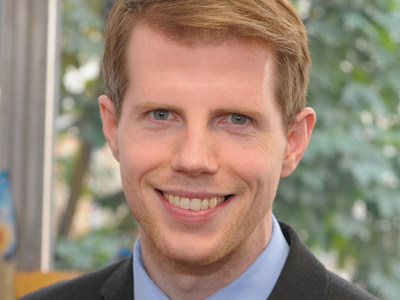
Woman secures compensation after brain tumour grows back
A woman from South London has received a six-figure sum following a delay in the diagnosis and treatment of a brain tumour.
Posted on 26 April 2022
The woman, a lawyer who we have called Maureen, developed the tumour, known as a vestibular schwannoma, when she was in her 30s. It was too big to be treated by radiosurgery (“gamma knife” surgery) and had to be physically removed for which Maureen went to a private surgeon.
The operation was difficult and, in order to preserve the integrity of Maureen’s facial nerves, part of the tumour was deliberately left behind. It was agreed that this was a sensible strategy, although it gave rise to the risk that the residual tumour could re-grow.
The operation caused Maureen significant neurological injury and debilitation, but she slowly recovered.
An MRI scan following the surgery showed the residual tumour, which the surgeon advised was unlikely to grow back and, if it did, growth would likely be slow and could be treated using the less invasive “gamma knife” radiosurgery method. Annual MRI scans would be needed to check for any regrowth.
At the same consultation, Maureen asked whether it would be safe for her to have further children and the surgeon advised that this would not be a problem.
On that basis, Maureen became pregnant shortly afterwards and informed her surgeon at her next consultation. He decided to defer her annual MRI scan by a further six months and advised Maureen and her GP that he had arranged for the scan to take place. However, when the time came for the scan, Maureen did not hear anything further.
When she contacted her surgeon to enquire, she did not receive a reply, so, a few weeks later, Maureen contacted him again and was advised that the MRI scan was being arranged.
By the time the MRI scan was arranged, however, Maureen had, unexpectedly, become pregnant again. The surgeon suggested that Maureen’s scan be deferred until “such time as [she] will fit in the scanner”.
When Maureen and her husband raised concerns that it had been two years since the original operation and 18 months since the first MRI scan, the surgeon said he would ask a neuroradiologist about the possibility of a scan during Maureen’s pregnancy, but Maureen did not hear anything further about this.
After Maureen’s baby was born, the MRI scan was re-arranged but, at the hospital, Maureen was told that she could not have the scan while she was breastfeeding, so it was cancelled.
Maureen eventually had the follow-up MRI scan three years after her original operation. She had been given the impression that this scan was essentially a final formality before she could be discharged from the surgeon’s care.
However, she was shocked to be told that the tumour had grown back and was larger than it had been before the surgery three years previously.
Maureen had not experienced any new symptoms from the regrowth as the tumour was growing into the space that had been left by the previous operation. However, it was clear that the tumour was aggressive and would soon become life-threatening. It had to be treated urgently and it was, again, far too large to be treated with “gamma knife” radiosurgery.
Maureen therefore underwent a second major operation. It was again a difficult procedure and, this time, the facial nerve could not be preserved. Whilst the operation successfully removed the tumour, Maureen was left with left-sided facial paralysis, along with an intense cluster of physical, cognitive, and psychological issues, including poor vision, concentration and memory difficulties, altered right-sided sensation, headaches, and fatigue.
When Maureen contacted her surgeon to ask how the tumour could have grown back so aggressively, he suggested that hormones relating to her pregnancies may have accelerated the growth.
The practical effects of Maureen’s injuries made life extremely difficult and, after some initial improvement, it became clear that she was never going to be able to return to her legal work and her husband had to become a full-time carer to her and their children.
Maureen instructed Sarah Campbell to investigate and pursue a case against the private surgeon. Factual and expert evidence was obtained which supported multiple allegations, including:
- that the uncertainties over the effects of pregnancy on vestibular schwannoma growth should have been explained to Maureen when she asked
- that the surgeon was under a duty to re-arrange the MRI scan when he advised that he would do so.
In either situation, it was argued that Maureen would have undergone a second MRI scan far sooner than she did and well within the window of opportunity to have the re-growing tumour treated by “gamma knife” radiotherapy.
It was agreed with the Defendant that, had the diagnosis been made within that window, Maureen would have undergone “gamma knife” surgery and would on balance have avoided all of the problems associated with the second operation.
However, as the surgeon continued to deny that he had breached his duty of care towards Maureen, legal proceedings were issued and served. Documentary, witness, and expert evidence was exchanged on both sides and the parties’ expert witnesses met to discuss the issues between them. The matter was listed for trial in the High Court.
Just over one month before the trial was set to begin, the Defendant made an offer to settle the case. The amount on offer was thought to be too low to be accepted by Maureen. A counter-offer was made and further negotiations ensued, with the parties achieving a settlement shortly before the trial was due to start.
Sarah Campbell said:
“It has been a real privilege to work, together with my colleague Michael Roberts, on this challenging case, aspects of which illustrate just how difficult it can sometimes be to achieve accountability in the context of private medicine, where there is often less emphasis on a multi-disciplined approach.
“In Maureen’s case, there was no criticism of the surgeon’s skill and expertise, but an underlying assumption was made that the tumour would be slow-growing (if it were to re-grow at all) which, along with inadequate arrangements for post-operative follow-up, proved to be disastrous, with life-changing consequences for our client. The settlement we achieved will not undo this, but we hope will go some way towards securing our client’s, and her family’s, future.”
Maureen said:
“Sarah and Michael supported our family with care and compassion throughout the lengthy legal process. We always felt that we were in the best hands, that they were doing their best for us and that we were not just another case to them. They made a difficult process much easier and we will always be grateful to them.”
Leigh Day worked with David Hart QC of One Crown Office Row chambers to successfully conclude this case before trial.



